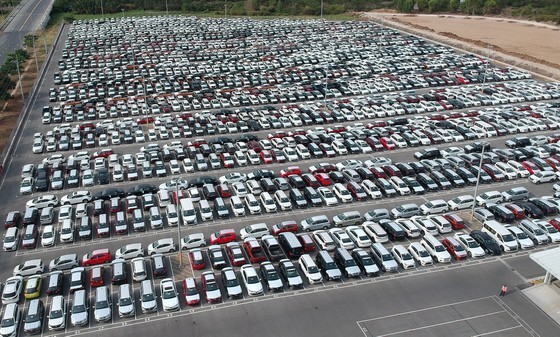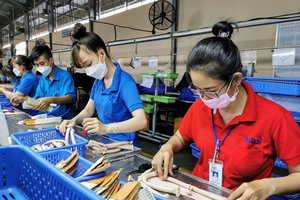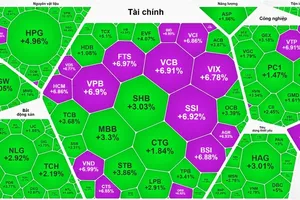
Huge unsold inventory
About 25 different car models have had their prices lowered since the beginning of 2020 according to market reports. Popular models such as Toyota Fortuner, Mazda CX-8, Honda CRV, Ford Everest and more all saw prices going down by VND100 million-300 million (about US$4,200-$12,000) per unit.
Volkswagen also recently cut the selling prices of their Tiguan Allspace and Passat by more than US$8,550.
Most dealerships maintained their positive sales volume targets before the pandemic hit, but now all suffer from loss revenue despite significantly lower prices, said business insiders.
The latest report by the Vietnam Automobile Manufacturers Association (VAMA) stated that sales of locally assembled and imported units fell 28 percent and 39 percent respectively in the first quarter.
Specifically, sales of Truong Hai Auto (Thaco) fell 29 percent, Toyota Vietnam fell 28 percent, Honda Vietnam fell 39 percent , Ford Vietnam fell 48 percent year-on-year.
A report by the Ministry of Industry and Trade also shows unsold inventory rising 122.5 percent over the same period in 2019. Increased inventory indicates plummeted sales, lower profits and higher production costs.
Further lowered prices means better competitive edges
In addition to the impact of Covid-19, consumers are wary since they are waiting for upcoming information on decreased taxes and car-related fees.
It was known that the Ministry of Planning and Investment earlier proposed a 50% reduction of registration fees for locally manufactured or assembled cars until the end of 2020, and is preparing a new excise policy for the domestic car industry.
The Ministry of Industry and Trade and VAMA also requested the Government for a 50 percent excise tax reduction on car registration fee for consumers.
There have been, however, controversies surrounding these proposals, as they will put importers of completely-built units at a disadvantage because their direct customers cannot benefit from these policies. Additionally, they might violate international commitments on non-preferential treatments under the General Agreement on Tariffs and Trade.
In addition, most imported cars in Vietnam are mainly from Thailand and Indonesia, who already have policies to support car manufacturers. Therefore, experts believe imported cars will have a clear competitive edge to go up against domestic cars.
Specifically, although their registration fee still lies at 10- 12 percent of the selling price, the selling prices can be lowered just a bit to be able to compete with locally-assmebled units.
If the proposals are approved by the Government, vehicles with fewer than 9 seats will benefit the most from reduced registration fees because their original fee rates are much higher (10- 12 percent) compared to other vehicles (6-7.2 percent).
























